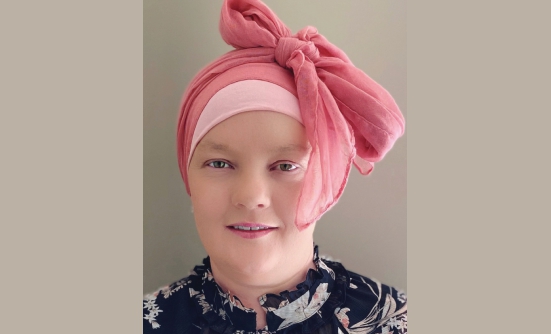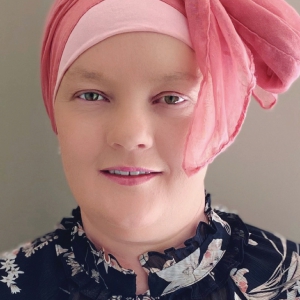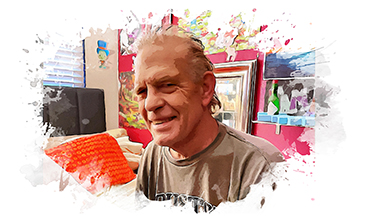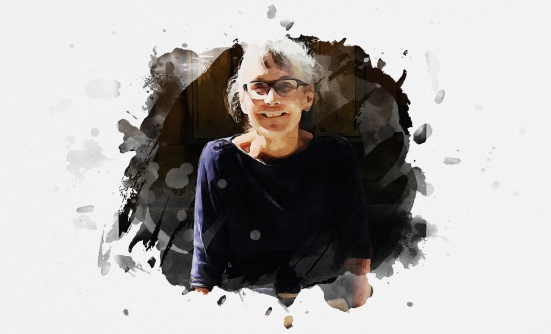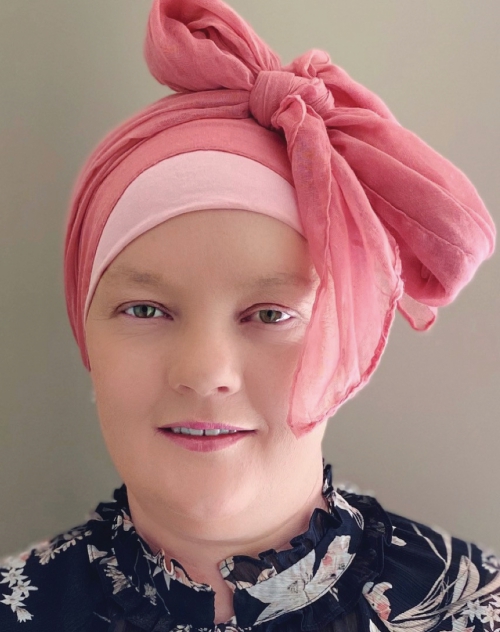
In August 2019, at age 39, I felt a lump in my breast. So I went in to see my doctor, Dr. Assem Swaid at the Jerilderie Medical Center in NSW Australia. He examined the lump and sent me to have a mammogram, an ultrasound, and a biopsy. I had all these tests done.
Uncertainty
I had the mammogram first, and then moved to another room to have the ultrasound. I was scared while lying on that “bed” for the ultrasound, because I didn’t know what the result was going to be.
Luckily, the young lady who performed my ultrasound made me feel comfortable. After looking at the ultrasound, she said, “I will go and get a doctor to have a talk with you.”
I started crying. I knew something was wrong. I was sitting up on the bed, and the woman who did the ultrasound and the radiologist came in, held my hand, and said that no matter what, this lump had to go. This was a Friday afternoon, and they said I had to do the biopsy. I asked if I could come back on Monday morning to do it. They contacted my doctor, Dr. Assem Swaid, as well, and said that I could come back on Monday for the biopsy.
The Shock
On Monday I had the biopsy done, and then I had to wait a few days for the results to come back, which was stressful. A few days later, I went to see my doctor to find out the results.
“Well,” Dr. Assem said, “Fay, I’m sorry, but your results came back positive for breast cancer.” I was shocked. But my amazing, beautiful, caring Dr. Assem was there to help me. He told me everything that would happen, and guided me through some of the steps that I would go through.
Okay to Cry
What would I do without him? I cried, and he said, “Fay, it’s okay to cry. Be sad, but one thing—try and stay strong and positive.” That’s what I did most days.
This was a journey I did not choose to be on, but I’m here, and I have to do everything to recover from this cancer. I went to see a surgeon, and I was scheduled to have the surgery within a week after seeing the surgeon.
Then I got a call from my breast care nurse, who said that I have an appointment to see an oncologist, and that my surgery might be delayed.
Starting Treatment After Some Confusion
So I had my appointment with my oncologist. He said, “Fay, we want to start chemotherapy before the surgery.” I was so confused about all this, but I felt that I was in safe hands. I felt comfortable with my oncologist, and the next step was to start chemotherapy a week later. I was scared, because I didn’t know what the chemotherapy would be.
So I went to see my doctor to discuss the chemotherapy, and he explained that I would get tired and have some periods of fatigue. I felt a little better after he explained what chemotherapy was. I started my chemo treatment. My first treatment plan was to have chemotherapy administered every 3 weeks. It was strong chemotherapy to attack the cancer hard. I had 4 cycles of chemo.
On the second round, I could no longer feel the lump. What a relief that was—I felt so good. I was thinking that this was working for me. I thought that after I would complete chemotherapy, I would be a step closer to feeling better.
Hair Loss & Head Scarves
After the second chemotherapy cycle, my hair started falling out, so I had it shaved. It was good to do that, because it was better watching it grow back than seeing it falling out in clumps. But my hair was the least of my worries. I would wear head scarves and put tie bows on the side to make them look a little better. Everyone would always comment how good my head scarves looked. I felt comfortable.
I had an amazing breast care nurse. She would always come in on my treatment days, have a chat with me, and see how I was doing. The help and support was always there.
I felt sad for all the other people who were in treatment, because I could see that some people were having a really hard time. Some days I cried for the other people. It made me very emotional seeing all the patients with cancer who were getting treatment.
But most days I was okay. After I finished the 4 rounds of intensive chemotherapy with doxorubicin, I started weekly chemotherapy with paclitaxel for 12 weeks. I didn’t feel sick from these treatments either. I was a little tired on the day that I had treatment, but I walked a lot, and I think that helped me. It seemed that the 12 weeks were going to last forever, but they did pass quickly after all.
Last Round
On February 24, 2020, I completed my last round of chemotherapy. What a relief to have that part finished! I also had CT scans done on that day, to see how the cancer responded to treatment. The scans showed I had a good response, and the cancer shrunk and was no longer visible on the scans. I felt so relieved.
My next step was seeing my surgeon, who was happy, and said that I only needed a lumpectomy, to remove only 25% of breast tissue. My lumpectomy surgery was on March 25, 2020, then I had a 5-week break, and then radiation for 5 weeks.
I have been cancer-free since then and am looking forward to staying healthy and enjoying life.
Best Care
My doctor said that this would all be over before I knew it, and he was right. I’m getting there. But without the support and help from my medical team, I would have been lost. I have received the best care and treatment. I would say to all patients who are diagnosed with cancer—stay strong and positive as much as you can. I got out and about. I didn’t want to sit around feeling sorry for myself, knowing that was not going to help me.





